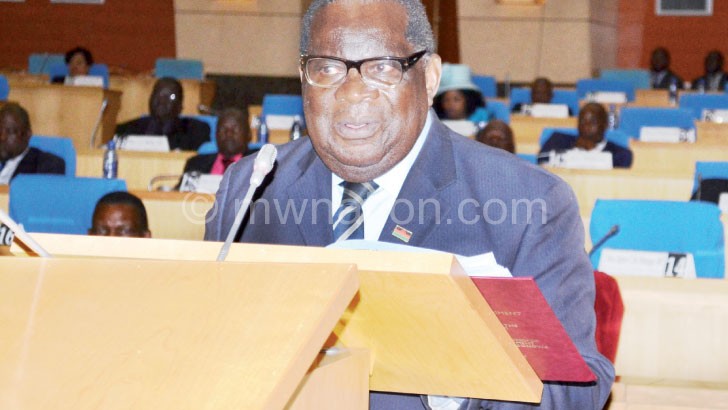GOVT positive as IMF jets in
An International Monetary Fund (IMF) mission jets into Malawi tomorrow for the ninth review of the Extended Credit Facility (ECF), which is an economic programme the fund supports.
As part of the review, the team is expected to ask Capital Hill difficult questions over its runaway public expenditure; scrutinise net domestic financing, net international assets and assess whether real progress is being made in public finance management (PFM).
Also likely to be on the mission’s agenda are the tanking economy, rising inflation on the back of widespread hunger that has left three-quarters of the population starving; the wobbly Malawi kwacha and the general macroeconomic policy environment that has all the hallmarks of instability.

Even before the 2015/16 national budget had settled, Malawi’s gross domestic product (GDP) growth rate was revised from a budgeted 5.1 percent to just around three percent.
And with signs that the financial market maybe up for a huge correction—several banks last week reported massive losses and sharply reduced profits after years of bubbles—fears of a recession may not be too far-fetched.
Inflation rate—according to the most recent minutes of the Monetary Policy Committee (MPC) of the Reserve Bank of Malawi (RBM)—is set to miss its budgeted target by several percentage points not just by December this year, but also by the end of the fiscal year in June 2017.
This makes the single digit inflation dream by 2018 just that: hallucinations.
In his Budget Statement, Finance, Economic Planning and Development Minister Goodall Gondwe announced that the inflation target for the fiscal year ending June 2017 would average 17.4 percent.
But with the RBM’s projection showing that the inflation outturn for December 2016 would be 25.4 percent, chances of the situation improving to Gondwe’s mathematics before the end of next June are low.
Thus, the Malawi Government will go into these discussions highly weakened and facing the possibility of the programme going off the rails before its extended expiry in December—unless, of course, Treasury can squeeze waivers out of the IMF, with climate-induced disasters as an excuse for their policy failures and inconsistencies.
But Treasury spokesperson Nations Msowoya yesterday was confident that structural reforms they have embarked on during the 2016/17 fiscal year have helped government to be in line with IMF requirements under the three-year $144.4 million (about K105 billion at the current exchange rate) ECF programme, which was approved on July 23 2012.
During the programme’s seventh and eighth review in March, the IMF mission hailed authorities for demonstrating efforts to put the programme back on track by meeting targets on net domestic financing and net domestic assets of the RBM, but fell short on the buildup in net international





